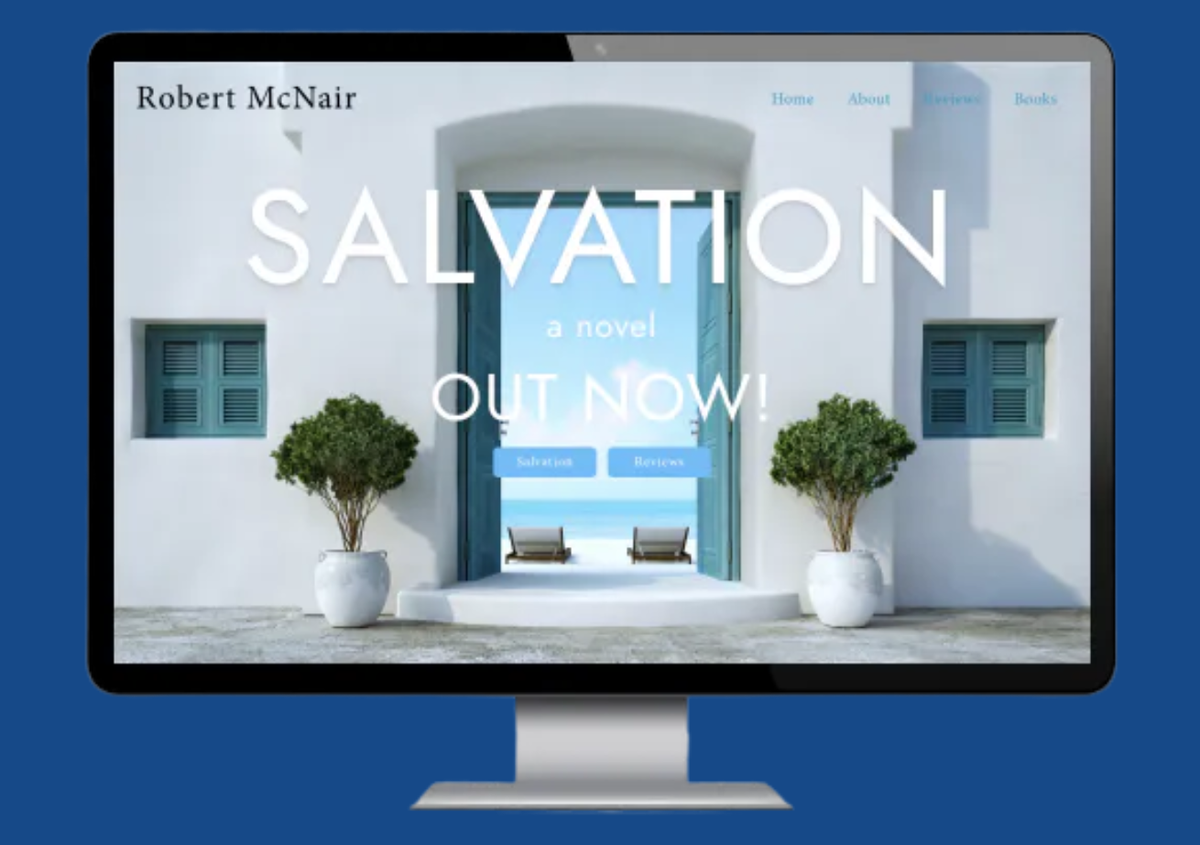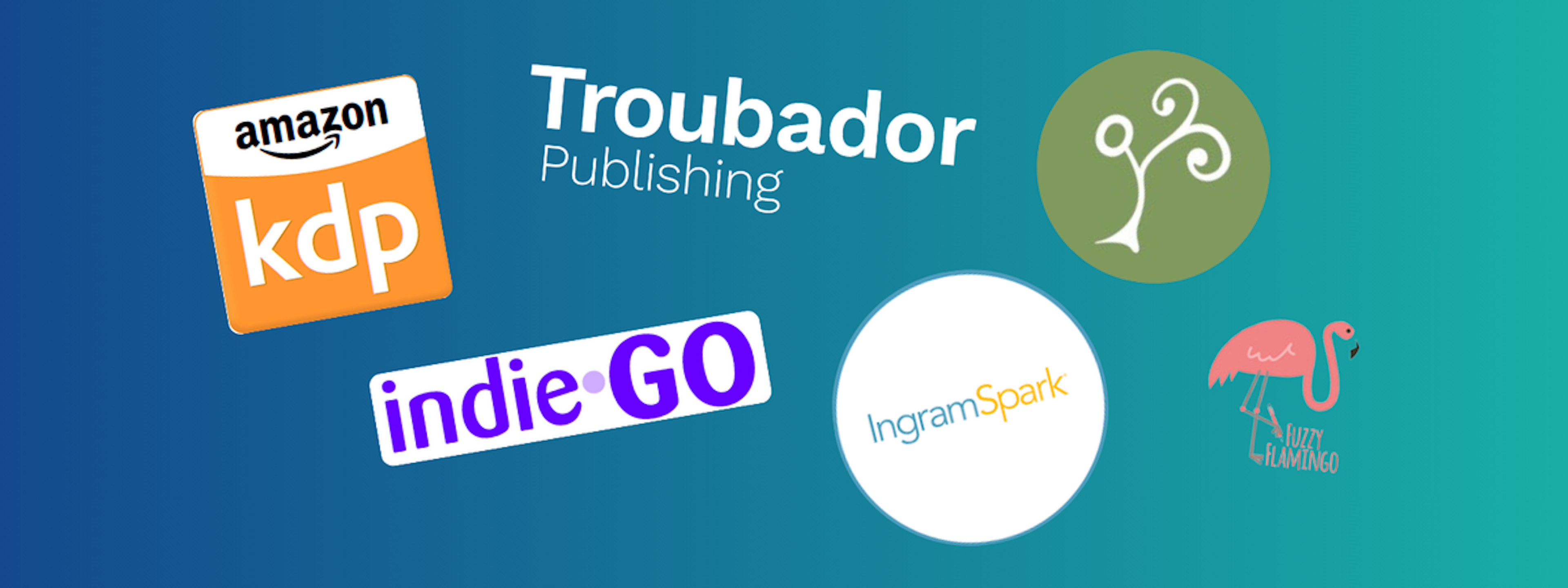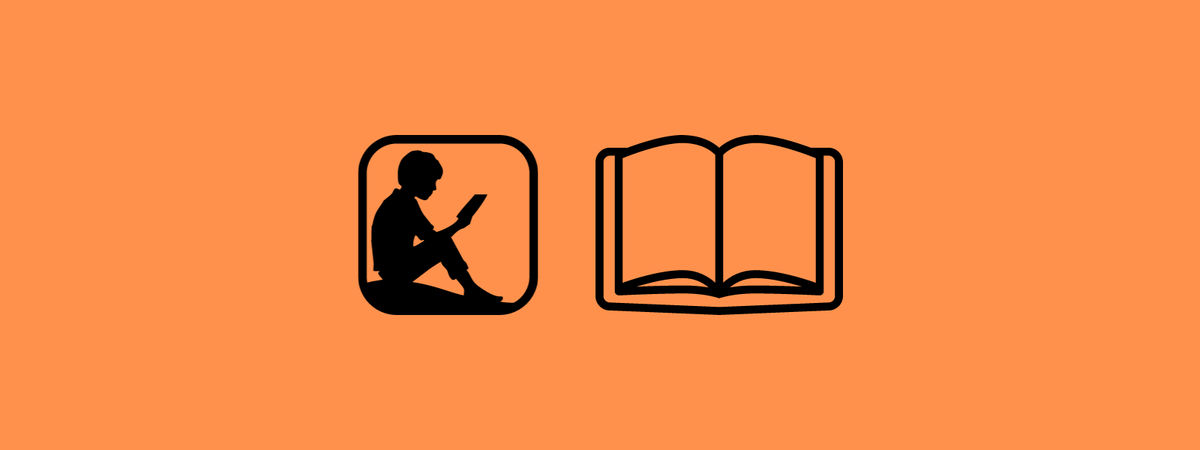
20th March, 2024
7 min read
Unlocking the Power of Personal Branding: Why Author Websites Are Essential for Every Writer
Written by:
Stephanie Carr
“I want an online presence to help grow my audience but find the world of social media a bit overwhelming.”
“I’ve always wanted my website but don’t have the technical know-how to do it myself.”
Does this sound familiar? Then read on…
These days, having an online presence as an author is essential if you want to sell copies of your book and spread the word about your work. With readers worldwide able to find your book online, directly reaching these audiences could lead to increased sales and a wider readership. Many authors turn to social media to help with this; after all, it’s free and easy to use - if you know what you’re doing.
With so many social media platforms available to us - Instagram, Facebook, X, LinkedIn, Threads - it can be difficult to keep up and learn the ins and outs of using each one. How do you tailor your content to suit each platform and its audience? How do you make your content stand out from the millions of other people posting at the same time?
That is where a website comes in.
Having a website is the ideal choice for authors looking to have everything to do with their books in one place. You can showcase your work and add retailer links, videos, or blog articles, and even allow readers to post reviews. This article is going to be a deep dive into the main things to consider when it comes to author website design, the benefits of websites for writers, some top tips for making the most of it, and how Troubador can help - including a look at some of our best author websites that we’ve created for authors.
The benefits of an author website
Building your author brand
Having your website allows you to develop an identity as an author and build on this to attract new readers and encourage sales of your book/s. A website will give you a professional online presence that is harder to obtain through social media; it will help you to build credibility and establish yourself as an authority.
Perhaps you’ve written a non-fiction book on a topic you’ve spent years researching, or even a novel based on your own experiences or true events - a website can help you to promote yourself as an expert in your field, giving readers confidence that your book is the one to buy if they’re interested in the subject matter.
All about you
One of the biggest benefits of having your website as an author is that you are in complete control. You may post something on X and find that it’s immediately lost on people’s feeds as hundreds of new posts pop up every second, and it can be a fight against that platform’s algorithms to get your content seen. With a website, you’re not competing with anyone else’s content; what you post will remain there for people to see and come back to.
A website also gives you the power to decide how you want to be portrayed - from the way your website is designed and styled, to the wording used to describe your book or an event you’re running. You don’t have to fit in with restrictive templates or restrictions of social media platforms, and can instead tailor your online presence to suit you.
Reach readers direct
A website enables you to connect with your audience and reach out to them directly. As well as being able to add links to external retailers, you might consider setting up a payment facility to sell copies directly, giving you some control over the sales of your book.
One of the best ways to reach your readers directly is through a dedicated newsletter. Whether this is sent out monthly, quarterly, or on a more ad-hoc basis, it’s a great way to ensure that readers don’t forget about you! Even if someone hasn’t visited your website in a while, a newsletter landing in their inbox will be a regular reminder that you’re an author with an active online presence. In this article from 2019, Penguin outlines the benefits of a newsletter, what’s involved in creating one, and the best platforms you can use to set one up.
Top Tips for Creating Your Author Website
1. Have a clear goal
How your website looks and functions should depend on your aims for having a website in the first place. Is your main goal to sell copies of your book? If so, you’ll want to have clear links to retailers, an easy-to-use payment function, and plenty of information about your books. Or are you aiming to showcase your work and promote new writing? In this case, a blog where you can share snippets of your work is essential.
An author looking to promote events and offers might consider a calendar or timeline of what’s coming up. Giving the website a focus will help you when it comes to designing it and ensuring that it’s fit for purpose.
2. Update regularly
It would be easy to launch your website and then sit back in the hope that it will now do all the hard work for you - but you’d be wrong. A website that lies dormant and is rarely updated is unlikely to be discovered by new readers and won’t have the impact you’re hoping for.
A website that is added to and updated regularly - either with a new blog post, some pictures from an event, or a special offer - will indicate to search engines like Google that it’s a website that is active and being engaged with. This in turn will likely make it appear earlier in search results and more easily discoverable to those looking for more information about you. Use your website to document your publishing journey and bring readers along with you!
3. Keep it Simple
A key component of a strong website is a clear, simple, uncluttered design. Imagine using a website to try to find some information - if it’s busy and difficult to read you’re unlikely to know where to begin. A good starting point is to think of your book cover - what colours, fonts and themes are used? Could these same elements be incorporated into the design of your website? Doing so will help to tie everything together and create a seamless and cohesive experience for your readers.
4. Promote it!
Don’t forget to shout about your website! If you don’t let people know about it, they won’t know it exists. In the early days after launching, your aim should be to drive as much traffic to the site as possible, so spreading the word is essential. Some easy ways to advertise your new website are:
- Post about it on social media or include it in your X or Instagram bio
- Include it in your email signature for some no-effort promotion
- Get some bookmarks or postcards printed with your website link included
OK, I want to go ahead. Where do I start?
There are so many options available these days for authors wanting to get started with their website. You could consider using a platform like Wix or Squarespace where a lot of the heavy lifting is done for you - with a variety of templates to choose from and many features built-in to avoid the need for any complex coding, these can be popular options for authors with limited knowledge of website design.
On the other hand, despite the wide range of templates available, your ability to be fully creative will be somewhat limited. If you want to support every step of the way, instant chat functions on these platforms may not be able to provide the level of help you need.
You may consider building a website yourself from scratch. There are plenty of articles online that could help you, such as this one from Forbes, and you’d have complete flexibility and control over the finished product - not to mention being able to keep the costs down!
But if you’re not particularly tech savvy, building or designing a website yourself could be a daunting prospect.
At Troubador, we offer a fully bespoke, flexible author website service, designed to help authors get up and running with a professional website of their own. Unlike other template-based services, our authors will work directly with our dedicated web designer to create a website they’re proud of.
Don’t have any design or coding experience? Don’t worry! We do all the hard work for you, building your website to your specifications and making sure you know how to use it – so you can get on with doing what you do best - writing your next book!
Our basic Starter website includes four pages:
- Homepage
- About the Author
- My Book
- Contact
The above pages can be swapped out for others depending on your goals and what you want your website to achieve. You can then build on this foundation, adding or removing pages until you have a combination that suits you. Additional pages could be a blog, a reviews page where readers can post reviews directly to your website, a photo gallery, or even video content. The possibilities are endless!
You can also add extras including Google Analytics (allowing you to monitor traffic to your website), a domain-specific email address, and even a full proofread of your website’s contents by our Editorial team before the website goes live.
If you’re an author looking to build an online presence without the complexities and nuances of social media, a website could be the right option for you. Take some time to consider your aims and what you want to achieve through your website, as this will help you to work out the best approach, and determine the level of support you may need.
Most popular articles

Alex Thompson
The 6 Best Self-Publishing Companies in the UK 2024

Alex Thompson
What is Full-Service Self-Publishing & Why Should an Author Consider It?

Andrea Johnson
Kindle Direct Publishing (KDP) versus Troubador: What should an author know?

Jane Rowland

